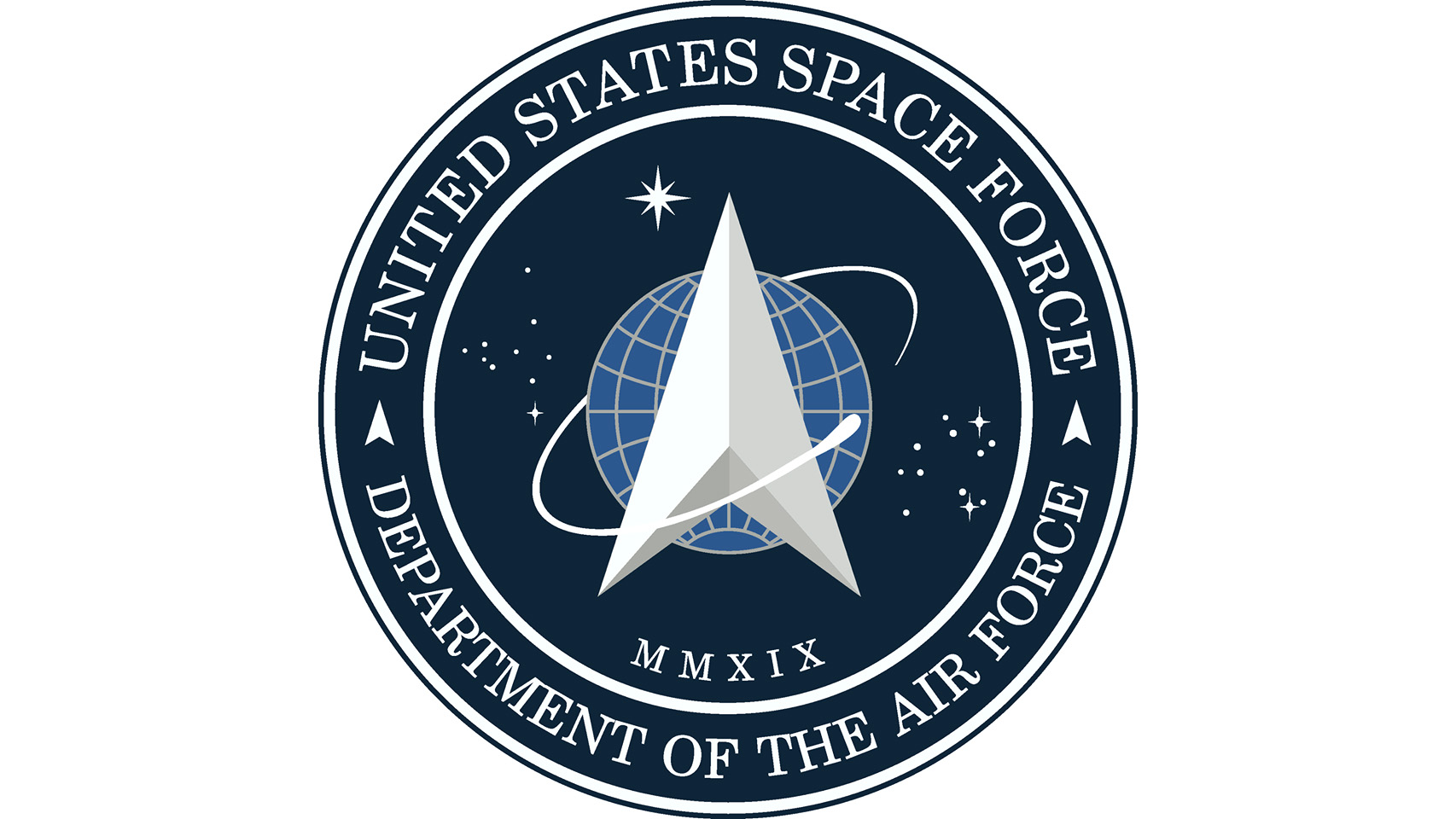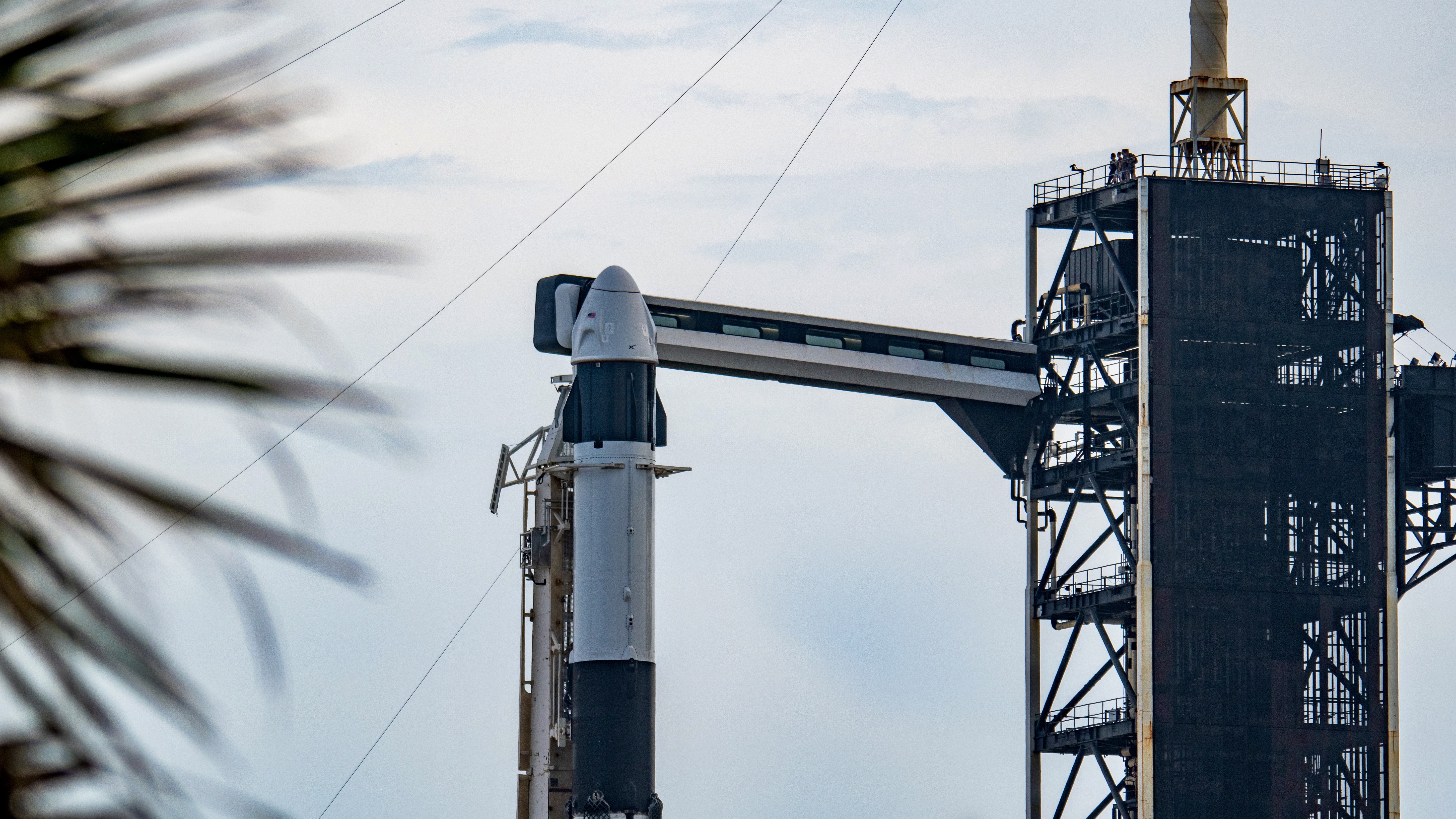US Space Force's activities still mysterious despite House hearing
Space Force commander Gen. John Raymond deferred many questions to a private setting.

Congress gave the lone employee of the United States Space Force quite a grilling this week, but the public still doesn't know much about the new military branch's activities.
During a hearing on Wednesday (March 4), members of the House of Representatives' Committee on Armed Services asked Space Force commander Gen. John Raymond about matters such as launches, reserve forces and future work.
In response, Raymond said that he's building out the Space Force's capabilities and its workforce, bringing in other people to support him.
Related: What is the Space Force?
Committee chairman Adam Smith, D-Washington, said that he agreed with the assessment, voiced repeatedly recently by U.S. military officials, that new thinking is needed to address a growing capability in space weaponry by foreign militaries. But Smith added that he's not sure if an entire new military branch would necessarily address the problem.
"Is it just another bureaucracy? Do we get a better, more focused look at how we take care of the needs in national defense?" Smith asked in the 3-hour livestreamed hearing.
The main challenge, Smith added, is to make sure the Space Force works in an efficient way.
Get the Space.com Newsletter
Breaking space news, the latest updates on rocket launches, skywatching events and more!
Other questions raised by committee members included the use of reserve forces (which appears to be something that will be addressed soon), and how the Space Force will be organized.
The Space Force is a separate military branch in the United States that the Trump administration put into place in December 2019, following a series of announcements that President Donald Trump made beginning in early 2018.
The armed services branch is meant to protect U.S. interests in space, discourage others (particularly China and Russia) from aggression and to conduct timely space operations as required, military officials have said.
Wednesday's hearing was focused on the fiscal year 2021 national defense authorization budget request for the Department of the Air Force, as part of the U.S. government's annual budget process. Most of it was devoted to finding efficiencies in Air Force programs. For example, many questions were raised about pilot shortages and the beleaguered F-35 jet procurement program, which includes hardware issues such as cracking and software that is reported to have nearly 900 bugs, according to Popular Mechanics.
Related: Trump calls for $25 billion for NASA to boost moon and Mars goals
But when it comes to the Space Force, only a few details have been released so far.
That's because, beyond public announcements on uniforms and a logo, much of what the Space Force is doing appears to be classified. For instance, Raymond repeatedly responded to questions during the hearing by telling representatives he would need to share such information with them privately in their offices.
But there were some things Raymond could point to. First, the numbers: Raymond said the suggested budget prioritizes space, since it allocates $15.4 billion to space-fighting domains, or roughly $9 billion more than last year. He called this a "strong pivot to space as a priority" and said having a new branch of the armed services is an "unprecedented opportunity" to build something new, unconstrained by past bureaucracy and therefore able to move "at speed."
While Raymond is the only Space Force employee at the moment, he anticipates many others will join shortly. As a start: Forty civilian positions opened up at the Pentagon and attracted 5,000 applicants, and there will be nearly 65 people moving directly to the Space Force from the Cadet Wing of the U.S. Air Force Academy, military officials have said. While 80% of support operations will be provided by the Air Force, the new branch is expected to focus on matters such as engineering data and cybersecurity related to work in space.
There are ongoing questions about where to base the Space Force, such as whether to use existing infrastructure at Colorado Springs (where operations for the North American Aerospace Defense Command, or NORAD, are conducted). Raymond said the qualifications he's looking for include access to data, access to expertise and the ability to communicate and foster relationships with "allied partners."
The Space Force is also looking at increasing the number of launches the U.S. military conducts, while reducing costs and making it easier to get into space. How this will happen is still under discussion, but it could include leaning more on commercial partners and creating a sort of "plug and play" interface for more automation during launches, Raymond said. The Space Force participated in an interagency tabletop exercise in November 2019 to discuss different scenarios, but Raymond did not speak of what happened beyond that.
"We need to speed that up," he said of space launches. When asked if he would consider California's Vandenberg Air Force Base as the possible site for most of these launches, he simply replied that the location is "a critical part" of current military space infrastructure.
Recent media reports have pointed to other developments in the Space Force, such as the use of 5G in its operations and an effort to recruit more women. Aerospace giants Boeing and Lockheed Martin were also awarded contracts related to satellite communication payloads.
- Military Space: Spacecraft, weapons and tech
- Space Force gets $15.4 billion in 2021 budget request
- The most dangerous space weapons ever
Follow Elizabeth Howell on Twitter @howellspace. Follow us on Twitter @Spacedotcom and on Facebook.
OFFER: Save at least 56% with our latest magazine deal!
All About Space magazine takes you on an awe-inspiring journey through our solar system and beyond, from the amazing technology and spacecraft that enables humanity to venture into orbit, to the complexities of space science.
Join our Space Forums to keep talking space on the latest missions, night sky and more! And if you have a news tip, correction or comment, let us know at: community@space.com.

Elizabeth Howell (she/her), Ph.D., was a staff writer in the spaceflight channel between 2022 and 2024 specializing in Canadian space news. She was contributing writer for Space.com for 10 years from 2012 to 2024. Elizabeth's reporting includes multiple exclusives with the White House, leading world coverage about a lost-and-found space tomato on the International Space Station, witnessing five human spaceflight launches on two continents, flying parabolic, working inside a spacesuit, and participating in a simulated Mars mission. Her latest book, "Why Am I Taller?" (ECW Press, 2022) is co-written with astronaut Dave Williams.
-
Geomartian MIB/ICE raid on Space Command removed all the reptiloids leaving this one person to explain to Congress why outsourcing HR was a bad idea.Reply -
solarlight I expect it will be an deployment of killer satellites used to knock other satellites out in case of any "need", that and monitoring of their comm.Reply -
Irvingr4 Many don’t know that in 1947 when “Air Force” was suggested there was much criticism against the idea. Our new Space Force will be Most appropriate to stop killer Asteroids and Comets ! "The dinosaurs became extinct because they didn't have a space program And if we become extinct because we don't have a space program, it'll serve us right!" Arthur C. Clarke. Substituting Space Force for Space program makes a lot of sense.Reply -
Bonzadog I would like a to see a neutral space zone around earth. The thought of having trump in charge of such a task force leave me thinking that the world has got even more dangerous.Reply -
Galactic Hitchhiker Reply
It's so secret even WE don't know what we're doing!Captain Twerk said:<<Removed by moderator>>

